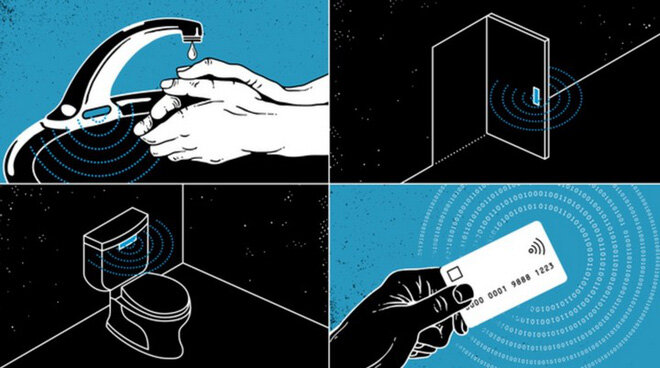If there's one thing that the Covid-19 pandemic taught us, it's a way of greeting without having to be exposed as a handshake. Yet another aspect that the Covid-19 pandemic has also taught people is how to get used to touch-free technology.

SARS-CoV2 virus is known for its ability to spread through contact surfaces and droplets of the respiratory system. So touchless technology now serves as a great relief for all of us in all life activities such as payment, opening or other activities, even flushing the public toilet.
As the Covid-19 pandemic spread, many companies producing non-touch devices and products were witnessing a rapidly growing demand for such products.Among them is Proxy, a start-up in California, USA that is focusing on building building security systems with smartphone applications instead of using cards or buttons. Above all, such air-touching systems became even more important during the Covid-19 pandemic and people were limited in contact with items in public places.

Proxy technology allows users to "check-in" into buildings and offices with Bluetooth signals on smartphones without touching any screen or even taking a smartphone out of their pocket.
Other companies, such as Kohler, a manufacturer of kitchen utensils, bathrooms, and American furniture, have developed touch-sensitive showers and smart toilets to meet the need for unnecessary products. touch but still work.
Even some of Kohler's smart toilets can automatically open / close and self-flush the water thanks to the sensor and timer mechanism.
In some parts of the world, non-touch products have become the norm in life. In China and Hong Kong, for example, automatic doors and touchless payment methods have become the norm in everyday life.
In part because the SARS epidemic in 2003 made people here more aware of individual safety measures. Meanwhile, many parts of the world are still maintaining traditional methods such as swing doors or contact doors.
The Covid-19 pandemic is making us feel more and more about the growing role of airless technology and other advances that will change our habits in the future.












